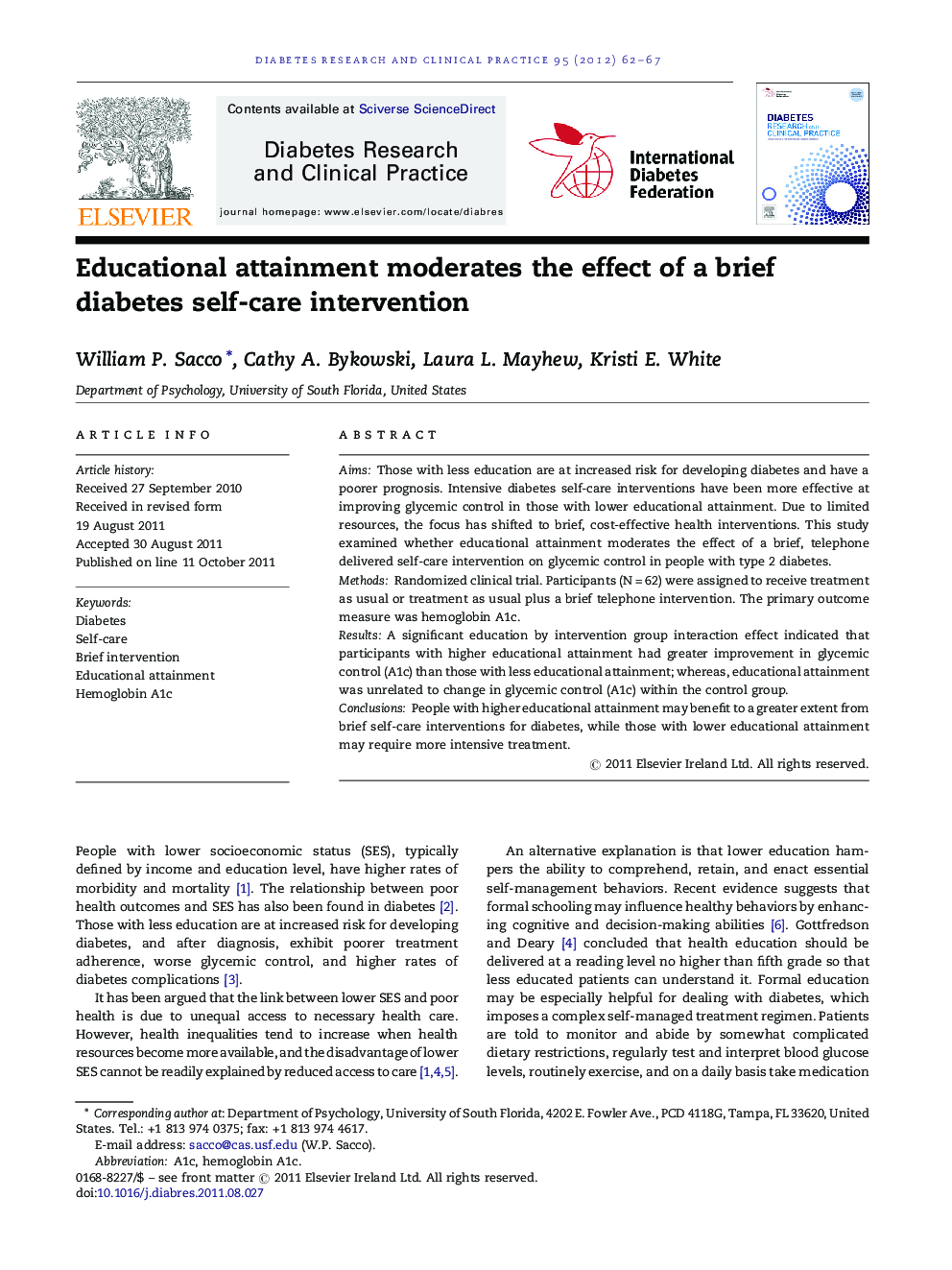| Article ID | Journal | Published Year | Pages | File Type |
|---|---|---|---|---|
| 2796943 | Diabetes Research and Clinical Practice | 2012 | 6 Pages |
AimsThose with less education are at increased risk for developing diabetes and have a poorer prognosis. Intensive diabetes self-care interventions have been more effective at improving glycemic control in those with lower educational attainment. Due to limited resources, the focus has shifted to brief, cost-effective health interventions. This study examined whether educational attainment moderates the effect of a brief, telephone delivered self-care intervention on glycemic control in people with type 2 diabetes.MethodsRandomized clinical trial. Participants (N = 62) were assigned to receive treatment as usual or treatment as usual plus a brief telephone intervention. The primary outcome measure was hemoglobin A1c.ResultsA significant education by intervention group interaction effect indicated that participants with higher educational attainment had greater improvement in glycemic control (A1c) than those with less educational attainment; whereas, educational attainment was unrelated to change in glycemic control (A1c) within the control group.ConclusionsPeople with higher educational attainment may benefit to a greater extent from brief self-care interventions for diabetes, while those with lower educational attainment may require more intensive treatment.
